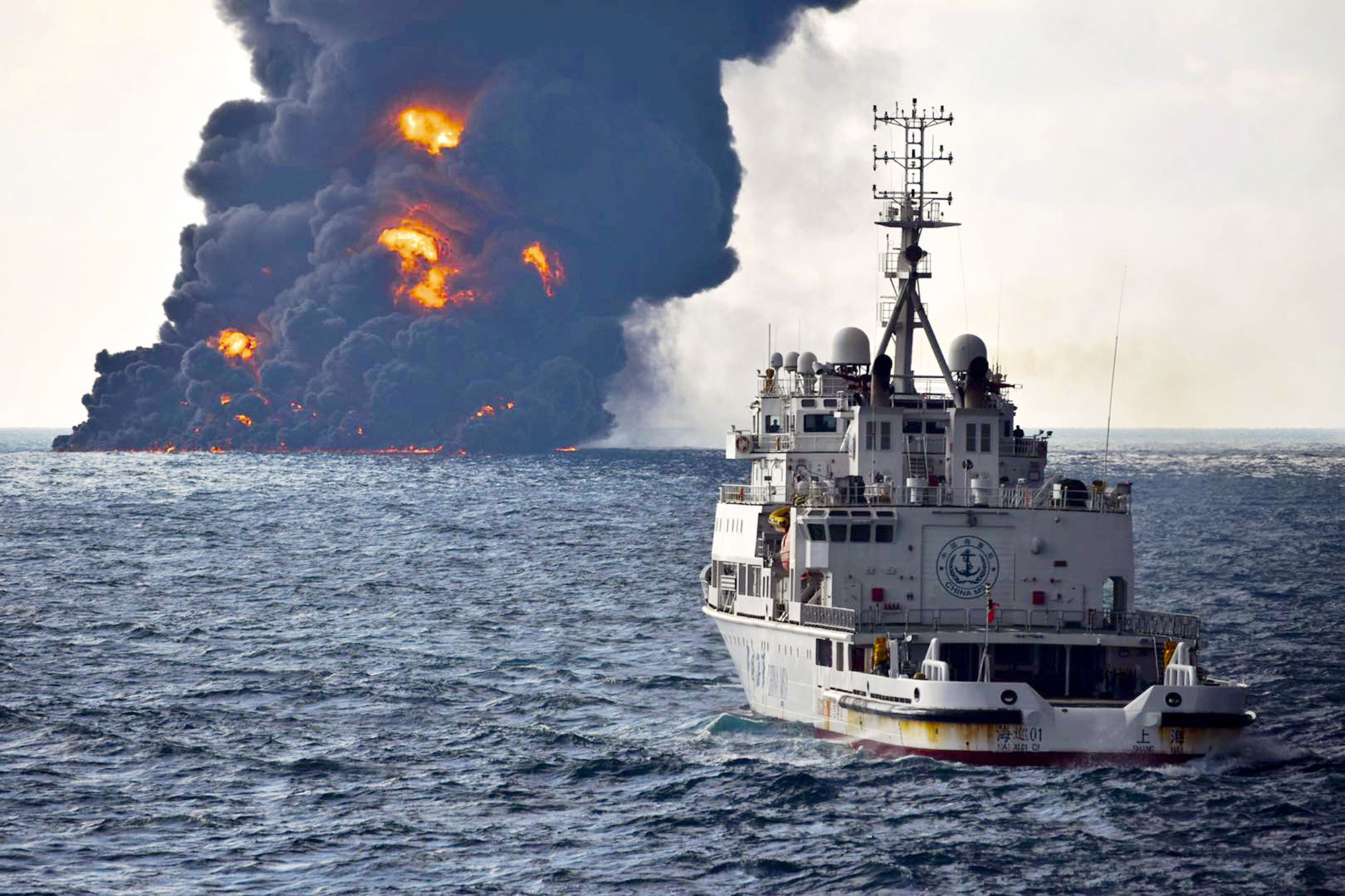Last Sunday's sinking of an Iranian oil tanker 290 km off the coast of Shanghai certainly looks like an environmental disaster. Depending on how many of the ship's 1 million barrels of condensate were released into the ocean and not burned off, the accident could end up being one of the biggest oil spills in half a century. The irony? Even that wouldn't represent the biggest disaster to befall the area.
The fact is, thanks to massive overfishing in China's territorial waters, there isn't much marine life left to kill in the disaster zone. According to He Pemin of Shanghai Ocean University, those waters have been so denuded over the last three decades that fishermen "normally bypass the area and go further afield for a bigger catch."
It's a dark twist to an accident that has the potential to send oil drifting to the California coast. And it should encourage the Chinese government to rethink how it manages its marine environment. The need is urgent: China's hunger for seafood is fast outstripping its domestic resources. Consequences already loom, including food inflation, a depleted environment for the hundreds of millions of Chinese who live along the coast and rising international tensions.



















With your current subscription plan you can comment on stories. However, before writing your first comment, please create a display name in the Profile section of your subscriber account page.